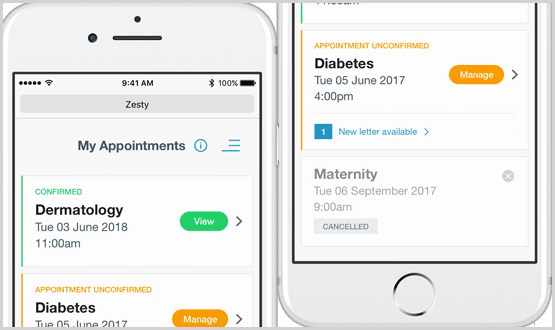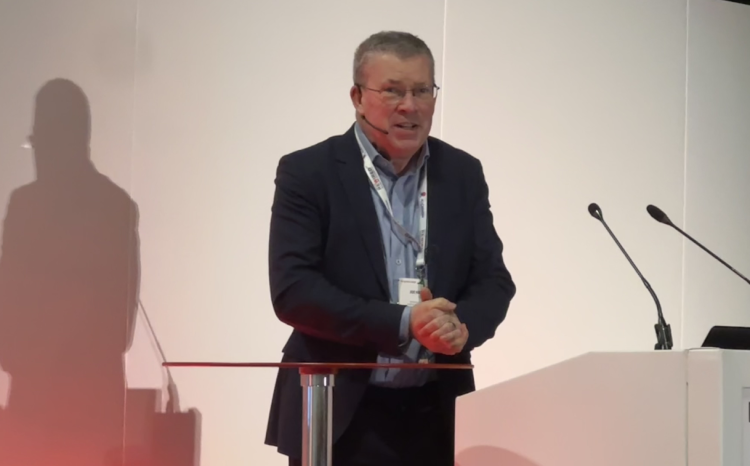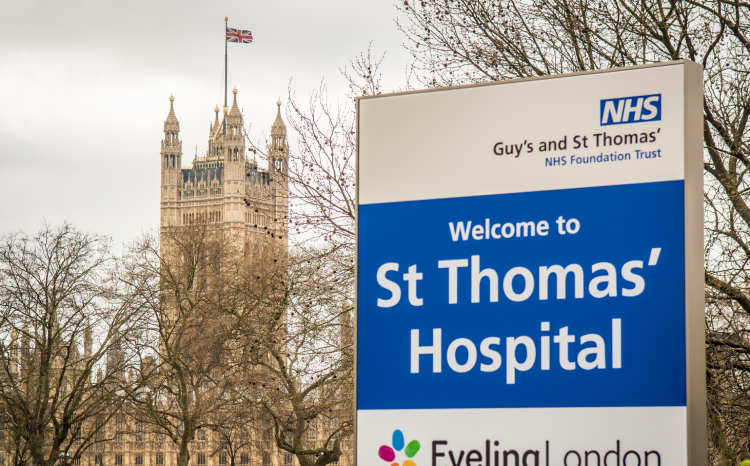The app giving power to outpatients at Milton Keynes University Hospital NHS FT

The attention around healthcare digitisation often tends to fall on the patients staying within a hospital. But at Milton Keynes University Hospital NHS Foundation Trust, a new app is proving the value of giving equal digital focus to outpatients – and starting a journey of greater patient empowerment, data sharing and gathering. Owen Hughes speaks to the trust’s chief executive to find out more.
Managing outpatient care can be a complex proposition. Just consider the increasing number of patients with complex, long term conditions who may have to see several different consultants at several different intervals and the challenges become clear.
Yet as Milton Keynes University Hospital NHS Foundation Trust (MKUH) has demonstrated, it’s an area holds that holds serious potential for money-conscious organisations willing to digitally innovate.
For the past six months, the trust has been running an app that allows outpatients to book and manage their appointments. Already, MKUFT has seen take-up by more than half of all its outpatients, and predicts it will save over £1m in 2018/2019 by cutting out paper, postage and admin work associated with traditional outpatient processes.
“The take-up has been unbelievable,” says trust chief executive Joe Harrison.
“Without any sort of nudge, we’re seeing about 55% of all patients registering. We haven’t trained, we haven’t advertised: all we’ve done is send a text message out, and because it’s intuitive and people want it, they just get on and do it.”
The app, called MyCare, is the result of a collaboration between MKUH and Zesty, a digital healthcare appointment booking service that works with a number of NHS trust in the UK.
Key to the app is that it enables patients to manage their appointments directly, with updates written directly into the trust’s patient administration system (PAS).
This makes it different to services like DrDoctor, which sit on top of the PAS and still requires an additional intervention to make it live in the organisation’s electronic records.
“There are lots of products on the market that do text notifications to patients, call-backs and all that sort of stuff,” says Harrison.
“We want patients to read-write into our PAS [and] we want them to be able to do that without having to talk to another human being, or another human being involved, in the same way you do your electronic banking or internet shopping.
“This hadn’t been done elsewhere,” he emphasises. “We told Zesty: ‘You can use us as a test case and we’ll use you to get the product that we want,’ so that’s the joint development process that we went through.”
Making use of wearables data
The most crucial element of the MyCare patient portal is the fact it can write directly into Cerner.
For MKUH, this represents the precursor to providing patients with access to their medical records, as well as potentially tapping the reams of health and activity data collected by wearables.
Says Harrison: “Now that we can effectively read-write into Cerner, the opportunity to get patients’ wearables to read-write into Cerner is there.
“A lot of the apps that we see on the market at the moment around blood pressure monitoring, around cardiac monitoring – all of that data is stored either in a cloud separately, or on paper.
“Actually, why wouldn’t we enable that to be brought into the patient’s notes? That would give even more information for the clinician to understand.
“As soon as you start getting into that field, you open up a whole new level of engagement with the patient, not just within the acute hospital setting, but at home and out of hospital, which is a fantastic opportunity.”
‘Patience, trust and faith’
Naturally, opting for a tailored solution as opposed to buying an off-the-shelf product comes with its own set of challenges.
“Because you’re not buying an off-the-shelf product, you need to have faith in the partner that you’re working with,” explains Harrison.
“As with any innovation, you can’t say ‘We will have innovated by a week on Wednesday’ – it doesn’t work like that. You’ve got to have the patience and the trust and the faith to believe that this is going to work, and you have to trust each other.
“That’s a very different relationship to just buying something off the shelf, where it’s a purely commercial arrangement.”
In Zesty, MKUH found a partner that shared the same vision of empowering patients with control over their own appointments, according to Harrison.
“They were coming from the same sort of perspective that we were, which is we wanted the patient to take control of the booking processes.
“They don’t need that paternalistic NHS overview.
“Zesty were in the same place and said they would develop the technology that would cut the hospital’s administration out where appropriate, and they’ve done it.”





1 Comments
Great stuff.
Is this using Smart on FHIR?
Comments are closed.